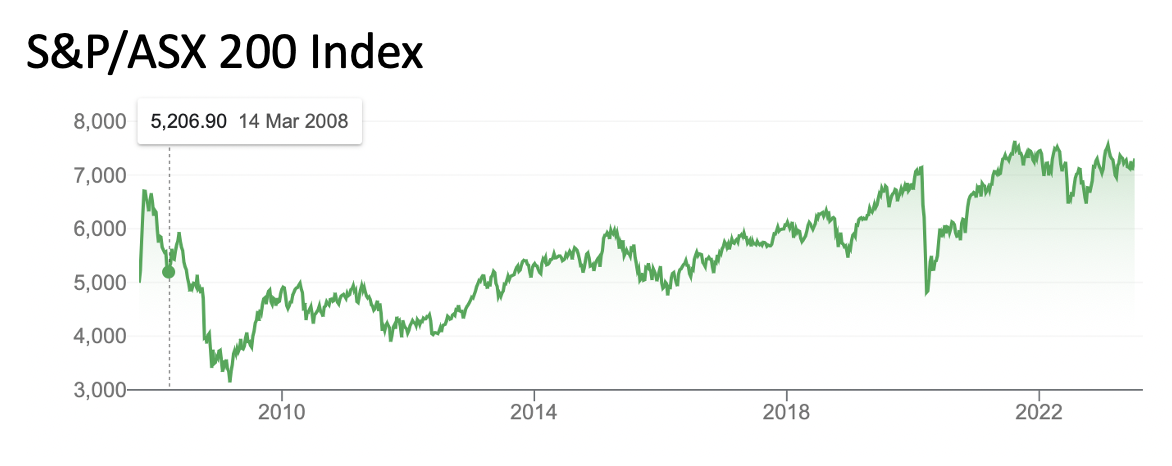

The Reserve Bank has done the smart thing and opted for a pause on its rate rise torture, which should be a stop. This comes as research work by investment group Jarden shows that renters are now better off than homeowners in cash terms, with soaring interest repayments dwarfing the rise in rents. And if renters play their cards right, they could do even better than their homeowner rivals. I’ll look at this later.
Home loan repayments have doubled from 24% of borrowers after tax income to 44%, while the rent slug has gone from 24% to 30% of a tenant’s net income.
The Consumer Price Index (CPI), which measures inflation, says average rents are up 6.3% for the year to May. But that’s an average number, as you’d expect rents in Toorak (Melbourne) and Rose Bay (Sydney) to have risen much more than 6% because the investors who own those properties would have seen their loan repayments spike big time.
However, rents in outer suburbs of cities and country towns wouldn’t have risen so rapidly.
Economist Chris Richardson says many homeowners have more savings than renters and that could mean a lot more renters are worse off in terms of the overall cost of living spike. However, that does depend on whether the homeowner overborrowed and what kind of buffer they have inside their home loan account.
The Australian reports that Jarden’s economist Chris Cacho says renters have been better off since December last year. That kind of thing hasn’t happened since just after the GFC of 2008. “He said mortgage holders who bought property in the past few years were being hit the hardest, with those aged 30-45 under the biggest strain,” Jess Malcolm reported.
Helping renters is the fact that rent negotiations tend to be an annual event, which means those who are better off today compared to homeowners with big mortgages, could find that life gets harder when the next annual rent view comes around.
This story reminds me of the old debate about renting versus homeownership. One of the legends of Australian research, IBISWorld founder the late Phil Ruthven, often argued that renting and investing in stocks would make you wealthier!
It especially worked overseas where tenants could lock in five or even 10-year rental agreements, so they knew what they were in for in terms of rent, which could be adjusted according to inflation.
Phil then would argue if someone put their savings from rent compared to home loan repayments into the stock market or super, they’d end up wealthier than a home owner. However, I’d often point to suburbs such as Paddington in Sydney that had spectacular price increases. And I once compared a terrace in that suburb to a blue-chip share like CBA, over a time period of late 1970s to some time around 2000. Both wealth outcomes came out close.
However, the stock market rises at a rate of 10% a year over 10 years but not many suburbs around Australia can do that. Meanwhile, good super funds can average 8% over 10 years, which means your wealth doubles ever nine years!
In a perfect world, having a property and a solid super fund powered by investing in stocks, will deliver a very comfortable retirement. These favourite facts about how stocks reward you over the long-term should be understood by someone who doesn’t own a home or maybe never will own one.
If you invested $10,000 into a basket of stocks that matched the returns of the overall stock market in 1970 by 2009 (one year after the GFC crash of the stock market, when stocks fell 50%) your $10,000 was over $250,000! And that was despite five crashes of the market over that time!
Nowadays you can invest in the overall stock market using an exchange traded fund (or ETF) with ticker codes such as VAS, IOZ, A200 and STW, which have low fees.
If someone must rent and they won’t have a property to make them rich, the stock market can deliver, but you must have some patience, a little knowledge and a pile of faith. Trust me, stocks can compete with property, with the best time to invest in stocks being just after a massive crash of the market, as this chart shows.

If you had the courage to buy an ETF for the local market in March 2009 (after the GFC), you would’ve made 131% in capital gain and about 13 years of income averaging around 5% a year!
That looks like a blue chip investment that few properties could compete with.